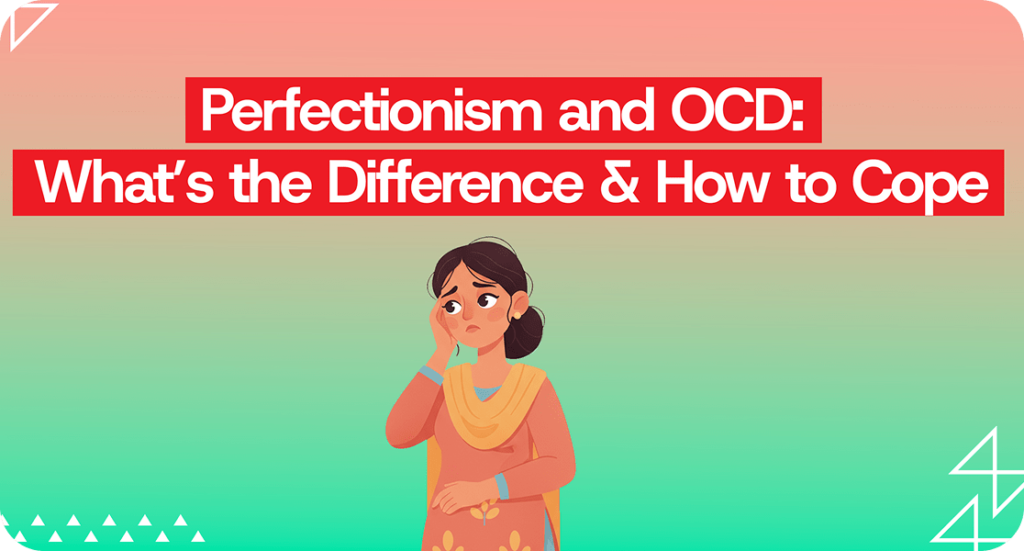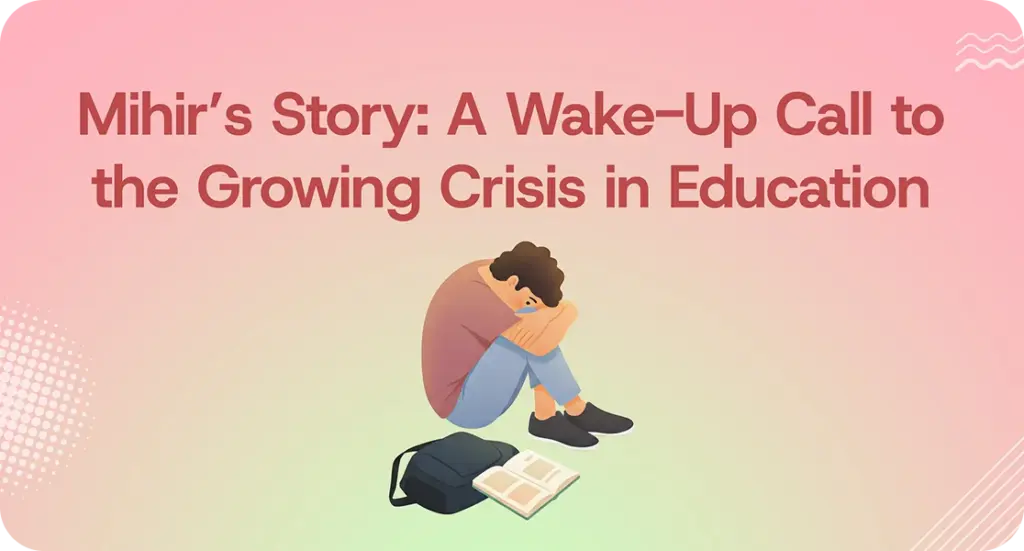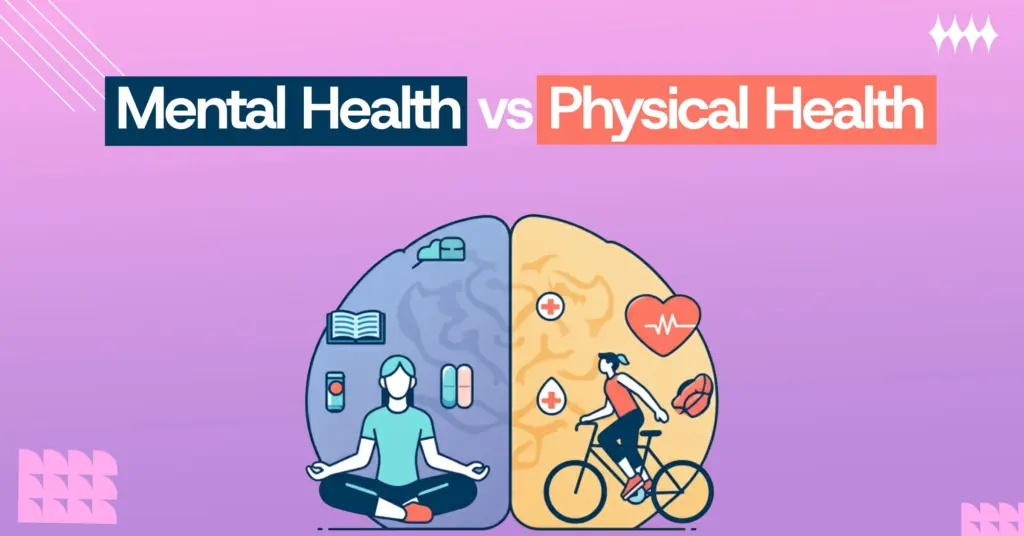
The impact of mental health on the body is real and significant. Have you ever felt tired even after a full night’s sleep? Or constant headaches without any medical cause? Your mind might be the reason your body feels heavy — and most Malayalis don’t realize it.Mental and physical health are deeply connected—what affects your mind can influence your body, and vice versa. The World Health Organization defines health as a state of complete physical, mental, and social well-being, not merely the absence of disease or infirmity.Have you ever noticed sudden fatigue, unexplained aches, or frequent headaches? Often we shrug them off—but these could be early signs that your mental health is affecting your body. In Kerala, many experience physical symptoms of anxiety or depression without realizing the mind-body connection. This post explores those hidden connections, helping you recognize symptoms and get the support you deserve. According to the World Health Organization’s definition, health is a state of complete physical, mental, and social well-being. This highlights the interconnectedness of these three aspects of health. Physical health issues can impact mental and social well-being, just as mental health issues can affect physical and social health. The mind and body are often considered separate entities, but they are, in fact, closely related. Mental health issues can manifest physically, affecting a person’s diet, sleep, and exercise habits, which can have a significant impact on their overall physical health. Additionally, negative mental states can affect the body, and substance use disorders can have a profound impact on both mental and physical health. Let’s Dive Deeper into the Details Related to This..

The Impact of Mental Health on the Body: Understanding the Connection
In Kerala’s fast-paced lifestyle — from stressful jobs to social expectations — many people carry emotional stress that slowly affects their physical health. Have you noticed the changes that women experience when their menstrual cycle begins? Many women exhibit significant mood swings during their periods, which can have a profound impact on their mental well-being.
These mood swings are often attributed to fluctuations in hormone levels that occur as part of the body’s physiological processes. This highlights the intricate connection between the body’s physical functions and the mind.
Variations in hormone levels are often cited as contributing factors to various mental health conditions. For instance, dopamine, often referred to as the “happy hormone,” has been linked to depression in numerous studies.
Need to Talk to Someone?
Book a private online session with a licensed therapist
This highlights the significant connection between the body and mind. It’s clear that mental health and physical health are interconnected, demonstrating the intricate relationship between our physiological and psychological well-being.
1. Stress Response and Its Impact on the Body
When we experience stress or fear, our body’s “fight or flight” response is triggered, releasing hormones like cortisol and adrenaline.
- This can lead to physical symptoms such as Headaches, Fatigue, and Digestive problems
- Prolonged stress can also affect our mental state, causing feelings of Lethargy, Lack of motivation, and Distrust
- This mind-body connection is a common phenomenon that can be observed in daily life. When we’re under significant stress, our body and mind can react in ways that impact our overall well-being.
2. Neurotransmitters and Hormones
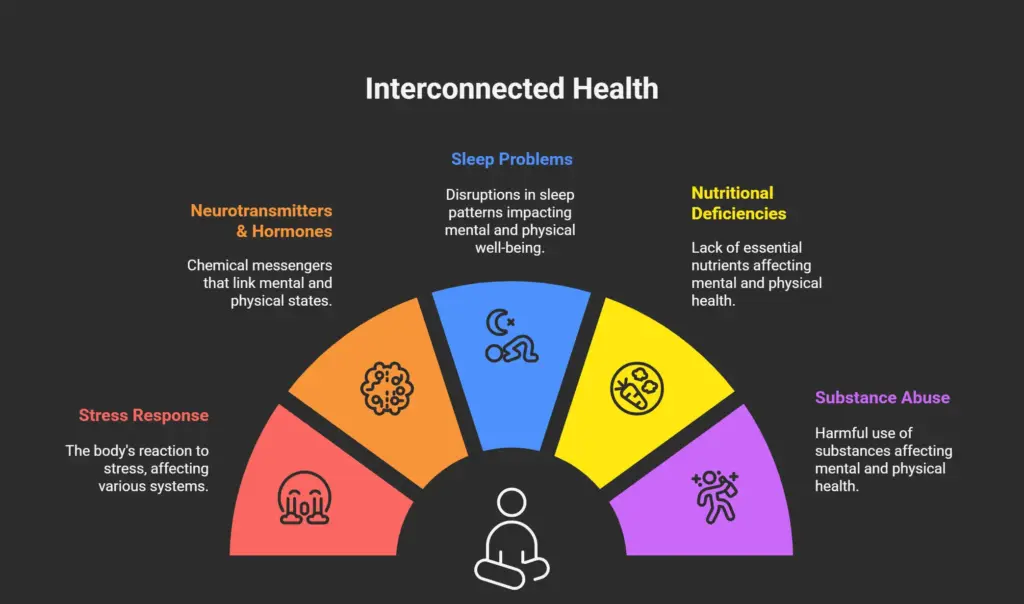
As mentioned earlier, research suggests that differences in neurotransmitter levels contribute to mental health conditions such as depression and anxiety. .
- Studies have shown that serotonin and dopamine levels influence Mood, Appetite, and Sleep. If sleep, diet, and mood are not healthy, it can affect both the body and mind.
- Additionally, hormonal imbalances can lead to various physical problems, highlighting the intricate relationship between hormones, neurotransmitters, and overall well-being.
3. Sleep Problems and Mental Health
- Sleep disturbances are a common issue in mental health conditions such as Depression, Anxiety, and Post-Traumatic Stress Disorder (PTSD)
- Healthy sleep is essential for both mental and physical well-being. Numerous studies have shown the significant role of sleep in maintaining overall health.
- Sleep problems can lead to Weakened immune function, Increased fatigue, Various physical health issues
4. Nutritional Deficiencies and Mental Health
- Poor eating habits and appetite disturbances can be symptoms of underlying mental health issues.
- Changes in eating habits, such as loss of appetite or overeating, can lead to Nutritional deficiencies, Physical health problems, and Mental health concerns
- The interplay between nutrition, mental health, and physical health highlights the importance of a balanced diet and healthy eating habits.
5. Substance Abuse
- The health problems caused by substance abuse illustrate the intricate connection between physical and mental health.
- Substance abuse can lead to Severe physical health issues, Mental health problems, such as addiction, Social consequences, including relationship breakdowns
- These issues can ultimately contribute to further physical and mental health problems, highlighting the need for comprehensive support and treatment.
Have You Seen the Movie “Vellam” Starring Jayasurya?
If you’ve seen it, you can understand the physical, mental, and social consequences of substance abuse. Substance use often leads to Severe physical health issues, Mental health problems, such as addiction, and Social consequences, including relationship breakdowns. These issues can gradually lead to more significant physical and mental health problems, affecting individuals in profound ways.
Feeling these symptoms often? Book a confidential Malayalam counselling session with Oppam today — get help from certified psychologists.
How does depression affect the body?
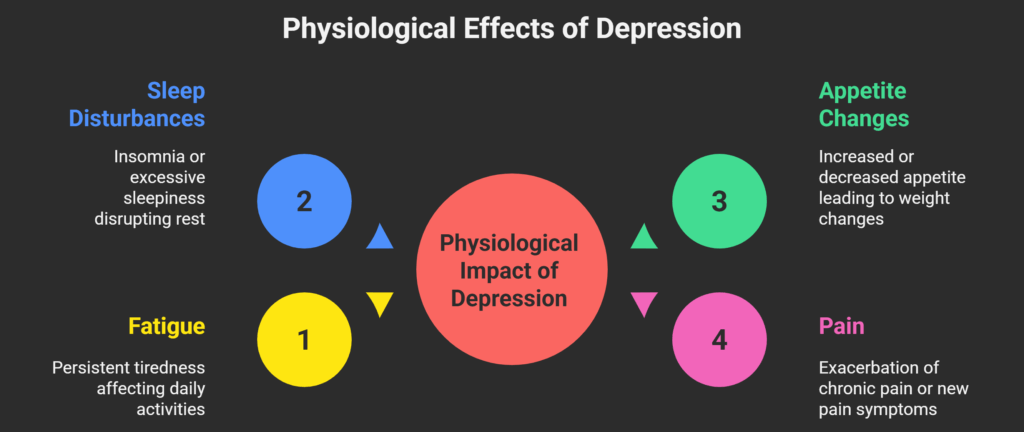
Depression can have a significant impact on the body, affecting various physiological systems. Some potential effects include:
Physical Symptoms
- Fatigue and low energy: Depression can make it difficult to perform daily activities.
- Sleep disturbances: Insomnia or excessive sleepiness can occur.
- Changes in appetite: Increased or decreased appetite can lead to weight changes.
- Pain: Depression can exacerbate chronic pain or lead to new pain symptoms.
Immune System
- Weakened immune function: Depression can increase susceptibility to illnesses.
- Inflammation: Chronic inflammation can contribute to various health problems.
Cardiovascular System
- Increased risk of heart disease: Depression can contribute to cardiovascular disease.
- High blood pressure: Depression can increase blood pressure.
Other Effects
- Hormonal imbalances: Depression can disrupt hormone levels, affecting various bodily functions.
- Digestive issues: Depression can lead to gastrointestinal problems, such as irritable bowel syndrome (IBS).
It’s essential to recognize that depression is a treatable condition, and seeking professional help can alleviate symptoms and improve overall well-being.
Anu, a 32-year-old from Kochi, visited multiple doctors for constant back pain. Only after therapy did she realize it was linked to unresolved anxiety. Within months, both her pain and mood improved.
Talk to a certified Malayali psychologist at Oppam — your body and mind deserve healing together.
Physical symptoms of mental disorders
When examining mental health issues, diagnostic tools like ICD (International Classification of Diseases) and DSM (Diagnostic and Statistical Manual of Mental Disorders) consider various physical symptoms to determine if a condition is a disorder. Mental health conditions often manifest physically, causing noticeable symptoms and changes in the body.
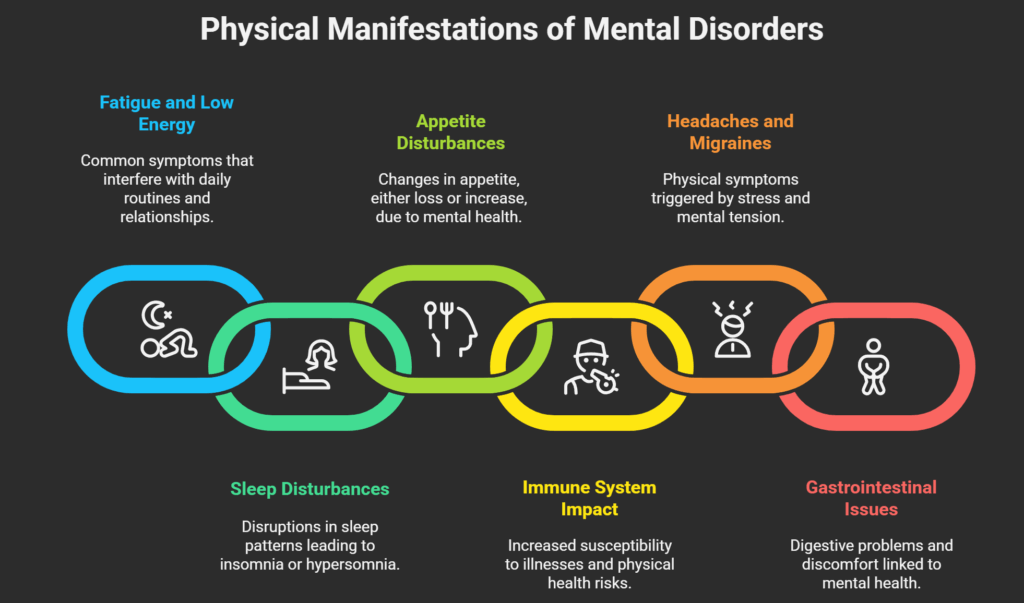
1. Fatigue and Low Energy
- Fatigue and low energy are common symptoms of various mental health conditions. When these symptoms interfere with daily routines and affect relationships and overall life, they can be indicative of a mental health issue. Specifically Depression, Anxiety disorders
- These conditions often manifest as a Lack of interest in activities and Low energy levels. If left unaddressed, these symptoms can lead to significant physical health problems, highlighting the importance of seeking support and treatment.
2. Sleep Disturbances and Mental Health
Mental health issues can significantly impact sleep patterns. Even minor stressors can disrupt sleep, and when mental health conditions are more severe, sleep disturbances can become more pronounced.
- These disturbances can lead to Insomnia (difficulty sleeping), Hypersomnia (excessive sleep
- iness), Other sleep-related problems
- The impact of mental health issues on sleep highlights the complex interplay between mental and physical well-being.
3. Appetite Disturbances and Mental Health
- Mental health conditions can significantly impact appetite, leading to Loss of appetite, Increased appetite
- These changes in appetite can be symptoms of various mental health conditions, including depression and other disorders.
- The relationship between appetite and mental health highlights the complex interplay between physical and emotional well-being.
4. Mental Health and Immune System
- Some studies suggest that certain mental health conditions can increase the risk of developing physical illnesses.
- Specifically, Depression has been linked to increased susceptibility to illnesses, Increased pain sensitivity, Higher risk of heart disease, and high blood pressure
- These findings highlight the complex relationship between mental health and physical well-being, emphasizing the importance of addressing mental health concerns to mitigate potential physical health risks.
5. Headaches and Migraines: A Physical Manifestation of Stress
Don’t we often experience headaches when dealing with significant stress and tension, whether it’s related to work, personal issues, or family problems?
- When we’re overwhelmed, our mental state can manifest physically, leading to Headaches, Migraines (in chronic cases).
- These symptoms can be triggered by anxiety disorders and depression, highlighting the intricate connection between mental health and physical well-being.
- When stress becomes unbearable, it can lead to debilitating physical symptoms, emphasizing the importance of managing stress and addressing mental health concerns.
6. Gastrointestinal Issues and Mental Health
- Mental health issues can affect the stomach and digestive system, leading to Digestive problems, Stomach discomfort, Irritable Bowel Syndrome (IBS), Stomach pain, Acid reflux.
- These symptoms can be triggered or exacerbated by stress and certain mental health conditions, highlighting the complex relationship between mental and physical well-being, particularly in the gastrointestinal system.
Feeling Overwhelmed?
You’re Not Alone. Get Support from an
Oppam Therapist Wherever You Are
Oppam Therapist Wherever You Are
Tips for maintaining mental and physical health
Mental Health Tips
- Practice Mindfulness: Engage in mindfulness activities like meditation or deep breathing to reduce stress and anxiety.
- Stay Connected: Build and maintain strong relationships with friends and family to support mental well-being.
- Get Enough Sleep: Prioritize sleep and aim for 7-9 hours of restful sleep per night to help regulate mood and reduce stress.
- Engage in Activities You Enjoy: Make time for hobbies and activities that bring you joy and help you relax.
- Seek Professional Help: Don’t hesitate to seek help from a mental health professional if you’re struggling with your mental health.
Physical Health Tips
- Exercise Regularly: Engage in regular physical activity, such as walking, running, or swimming, to improve mood and overall health.
- Eat a Balanced Diet: Focus on consuming a variety of whole, nutrient-dense foods to support physical and mental health.
- Stay Hydrated: Drink plenty of water throughout the day to stay hydrated and support physical health.
- Get Enough Physical Activity: Aim for at least 150 minutes of moderate-intensity exercise or 75 minutes of vigorous-intensity exercise per week.
- Practice Good Sleep Hygiene: Establish a consistent sleep schedule and create a relaxing bedtime routine to improve sleep quality.
Tips for Overall Well-being
- Prioritize Self-Care: Make time for activities that nourish your mind, body, and spirit, such as yoga, reading, or spending time in nature.
- Set Realistic Goals: Set achievable goals and celebrate your successes to build confidence and motivation.
- Stay Present: Focus on the present moment and let go of worries about the past or future.
- Practice Gratitude: Reflect on the things you’re grateful for each day to cultivate a positive mindset.
- Seek Support: Build a support network of friends, family, and healthcare professionals to help you navigate life’s challenges.
If you’re struggling with emotional stress or mental health challenges, it’s important to seek support—because mental health can significantly impact physical well-being. Platforms like Oppam offer accessible and affordable online counselling with experienced professionals to help you manage both your mental and physical health more effectively
By incorporating these tips into your daily life, you can support your mental and physical health and cultivate overall well-being.
Many mental health conditions often manifest physically, highlighting the intricate connection between mind and body. When physical symptoms persist and are accompanied by mental health concerns, seeking help from a mental health professional can lead to significant positive changes.
It’s essential to prioritize both physical and mental well-being, recognizing that health encompasses a broad spectrum of aspects. True health and wellness can only be achieved by considering all these interconnected areas. By acknowledging the interdependence of mental and physical health, individuals can take steps towards achieving overall wellness and becoming healthier, more balanced people.
Need help navigating your concerns? Book an counselling session with Oppam.
If you’re feeling overwhelmed, anxious, or emotionally drained, it’s important to know that mental health can directly affect your physical health. At OPPAM, experienced therapists offer affordable online counselling to help you manage stress, improve emotional well-being, and support your overall physical health.
Are you confused about how to handle your issues?
Struggling?
Talk to an Oppam Therapist
Get the Support You Deserve Online & Confidential
